World braces for 'dramatic escalation' in tensions after key Iranian general killed: Analysis
The U.S. killed Qassem Soleimani in an airstrike in Baghdad.
In killing Gen. Qassem Soleimani, the leader of Iran's elite Quds Force, President Trump went where his predecessors wouldn't tread.
The move was the culmination of months of building tensions between the U.S. and Iran, so often manifested through proxy conflicts in the Middle East. Iranian officials have vowed a "vigorous vengeance," and retaliation in the region and elsewhere may be all but inevitable.
But how influential was Soleimani in Iranian policy? What kind of blow is this to Iranian ambitions? And what can the world expect to happen next?
ABC News contributors and analysts shared their thoughts on what may be one of the most decisive moments in U.S. foreign policy of the Trump administration.
Soleimani -- a ‘hero’ in Iran
Soleimani was a major general in the Islamic Revolutionary Guard Corps, and since 1998 had commanded the elite Quds Force, a U.S.-designated terrorist organization. The Quds division is primarily responsible for military and espionage operations abroad for the Iranian government – essentially controlling all Iranian and Iranian-allied troops in Iraq and Syria.
The group also provides intelligence and other material support to a range of terrorist organizations, including the Taliban, Hezbollah and Hamas, according to the U.S. Treasury Department, which administers sanctions.
In his capacity as leader of the Quds Force, Soleimani has been blamed for killing hundreds of U.S. and coalition personnel and wounding thousands more – he was particularly crucial in mobilizing Iraqi insurgents during the Iraq War.
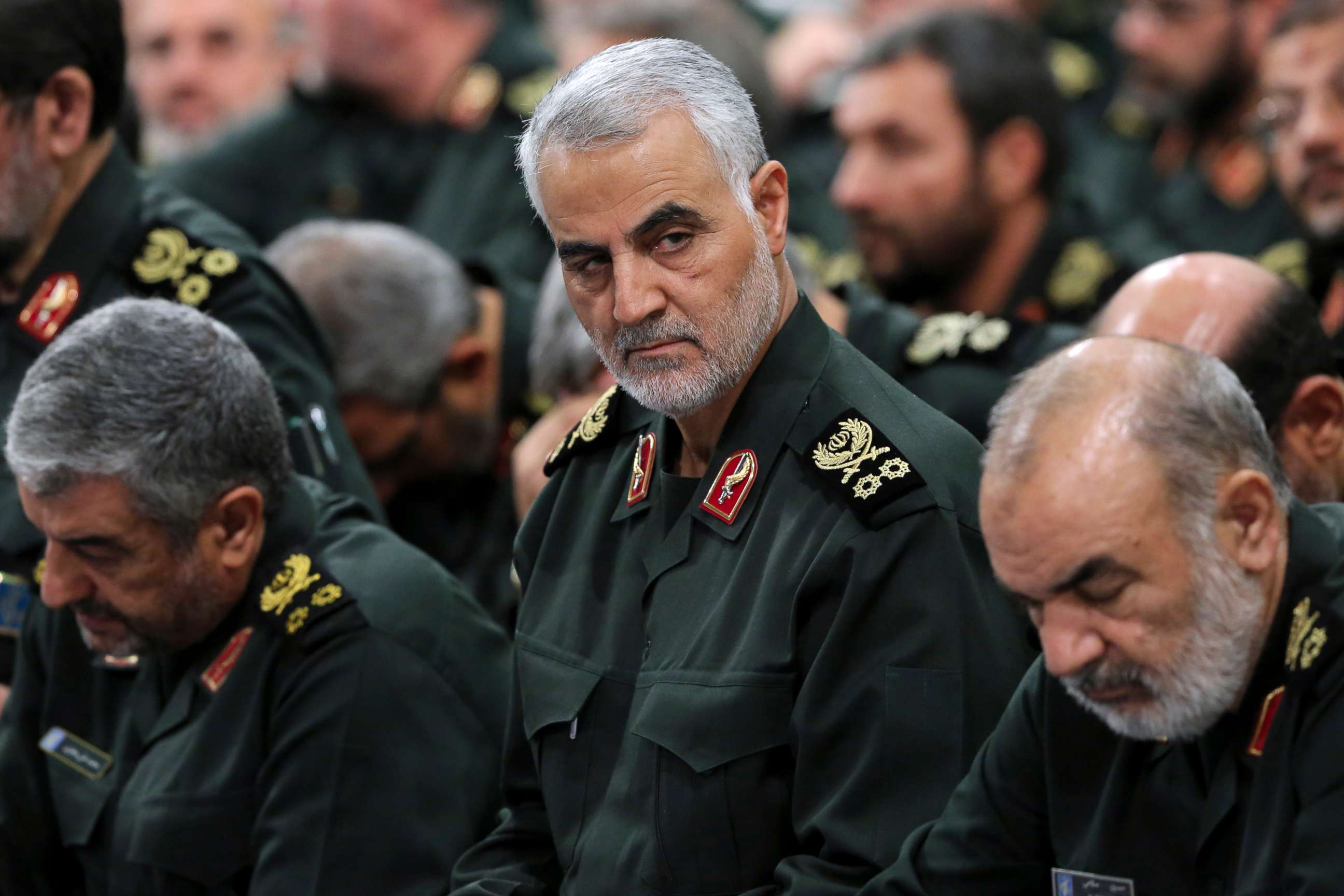
The Pentagon said Soleimani, who was killed in a U.S. drone strike along with six others, was actively planning attacks on U.S. personnel. Soleimani is believed to have arrived at Baghdad International Airport to meet with Iraqi militia leader Abu Mahdi al-Muhandis, who was among those killed in the attack.
Soleimani’s death followed an attack on the U.S. Embassy in Baghdad this week by an Iranian backed Iraqi militia and its supporters. That assault was to protest U.S. air strikes on the militia's fighters in Iraq and Syria, themselves a retaliation against a rocket attack on an Iraqi base that killed an American last Friday, which the U.S blamed on the militia and its backer Iran.
While responsible for so many U.S. deaths, Soleimani was viewed by many in Iran as a "hero" thanks largely to his exploits in the Iran-Iraq War in the 1980s, ABC News’ Chief Global Affairs Correspondent Martha Raddatz said on "Good Morning America."
"Iran is all but certain to retaliate… with fears of an escalation that could spiral into war," she said. "It is unclear how this ends."
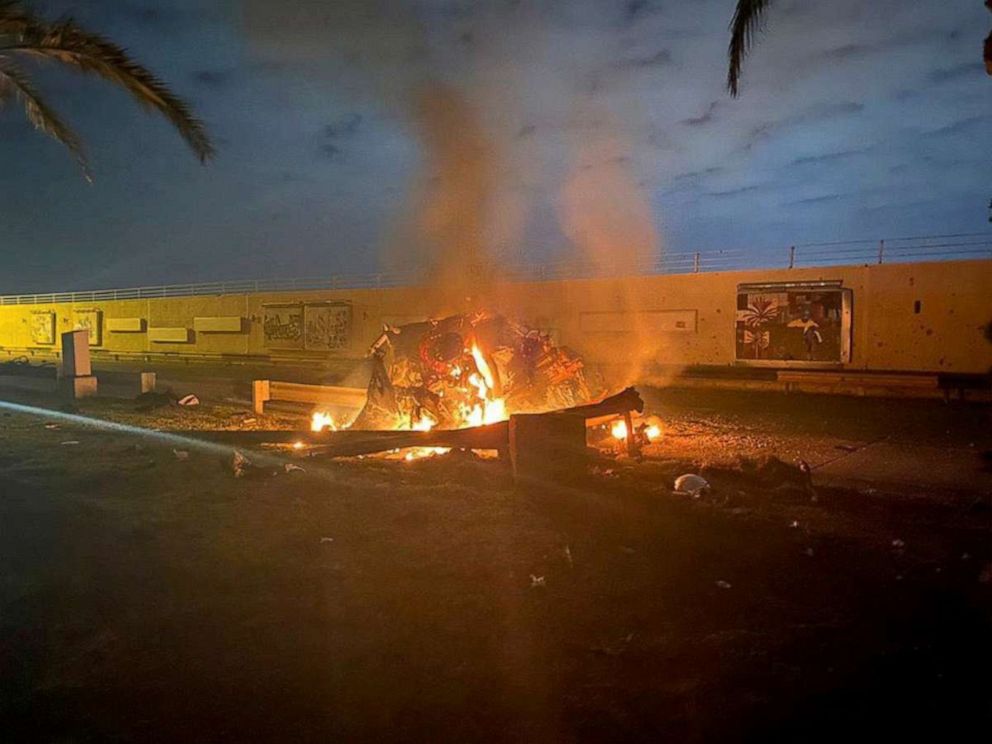
As both an icon and key military commander, the death of Soleimani is "such a blow" to Iranian interests in the Middle East, according to Raddatz.
What would an Iranian response look like?
As such, his death is "hugely consequential" in the region, according to ABC News Foreign Editor Marcus Wilford.
"It is almost inconceivable Iran does not now retaliate in kind in some way, directly against a US target of some kind," he said. "Iran’s biggest assets are regional, therefore the most vulnerable US assets are also local, whether [they are] embassies, ships in the Gulf or personnel stationed in Iraq and Syria."
With Hezbollah in Lebanon and further assets in Afghanistan, the potential target could also be Israel, he said.
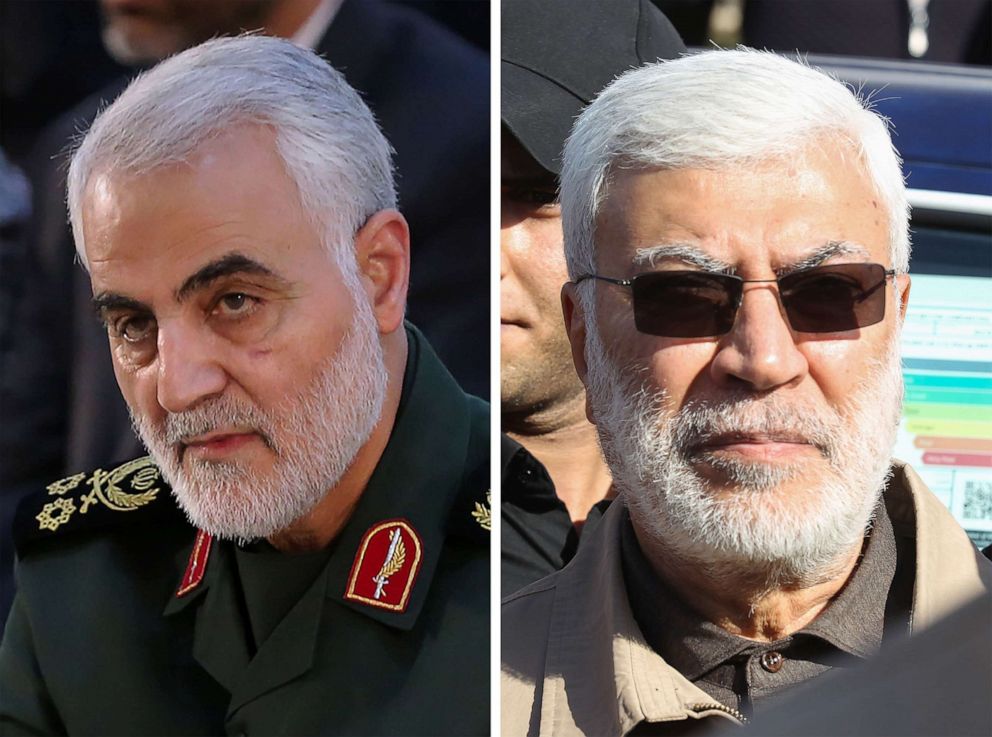
This killing will also bring the two nations into more direct, open conflict than has been seen before, according to ABC News' contributor Stephen Ganyard, a retired Marine Corps colonel and former deputy assistant secretary of state -- with Iran no longer able to hide behind its proxy forces.
Iran has previously denied direct involvement in last year’s strikes on oil fields in Saudi Arabia, which its partner the Houthi rebels claimed, and the Dec. 27 strike that killed an American contractor, which an Iraqi militia claimed.
"The [Trump] Administration has made it clear that Iran will be held directly responsible for any response," Ganyard said. "This is a change. No more hiding behind a surrogate such as the Iraqi militias or Hezbollah or Hamas."
"The terms of the relationship have changed," he added.
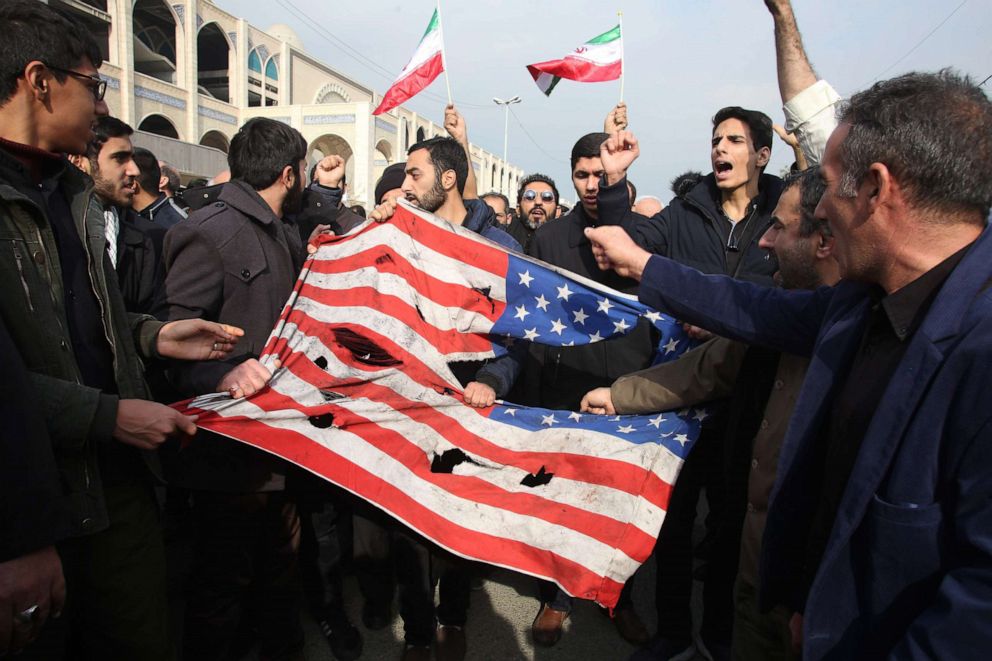
US still committed to 'de-escalation'
In phone calls with foreign counterparts Friday, Secretary of State Mike Pompeo said the Trump administration is committed to "de-escalation," but the U.S. has also now indicated it will be willing to strike Iranian targets preemptively.
Embassies in the region and Israel are on high alert in the aftermath of the killing, with the State Department advising all U.S. citizens in Iraq to leave the country.
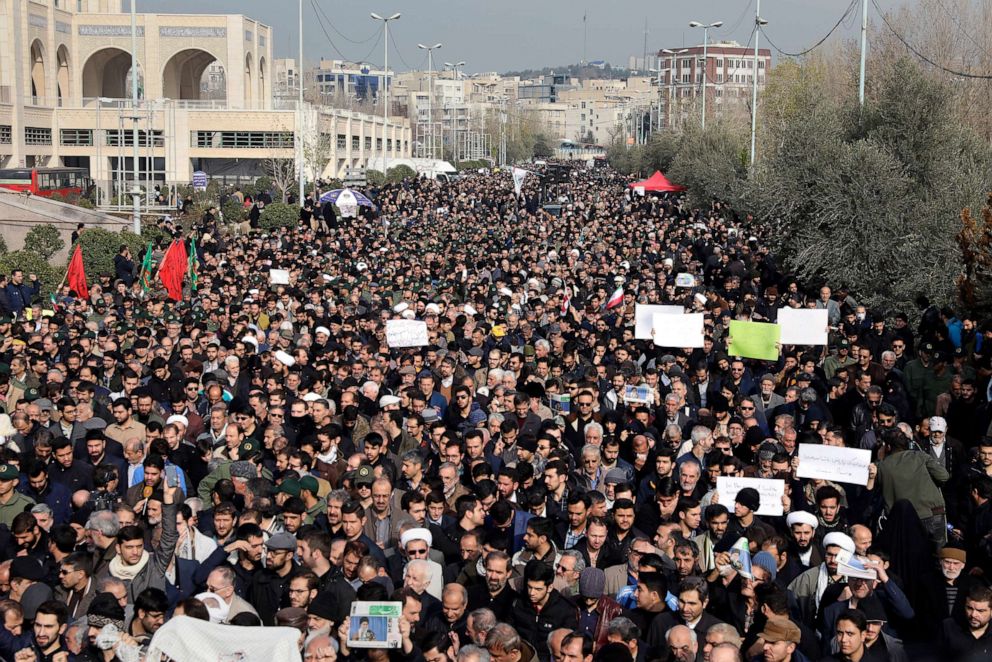
Meanwhile, last year, a joint FBI-DHS bulletin warned that Iran and Hezbollah have "both demonstrated an intent to target Israeli interests, Jewish persons, and Jewish interests globally."
ABC News’ Chief Justice Correspondent Pierre Thomas told "GMA" that American police forces across the country are on high alert, officials are bracing for a possible retaliation – which could involve a cyber-attack – on U.S. soil after Soleimani's killing.
And foreign governments – both traditional allies and rivals – have issued repeated warnings and called for caution after the killing.
While noting the danger Soleimani posed, the U.K. Foreign Secretary Dominic Raab issued a statement calling for "all parties to de-escalate." The Russian Foreign Ministry said the decision was "fraught with grave consequences," while China’s Foreign Ministry said it was "highly concerned."
While there is so much that is still uncertain, as Raddatz noted on GMA, the events of Jan. 3 undoubtedly marked a "dramatic escalation" in Middle Eastern tensions.




